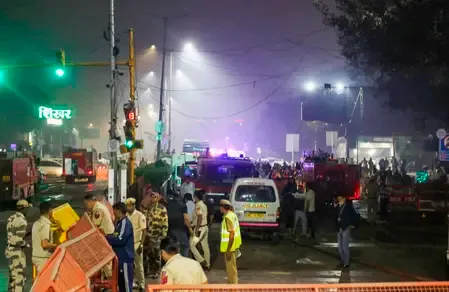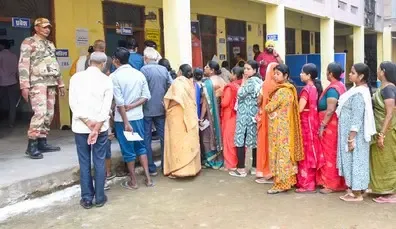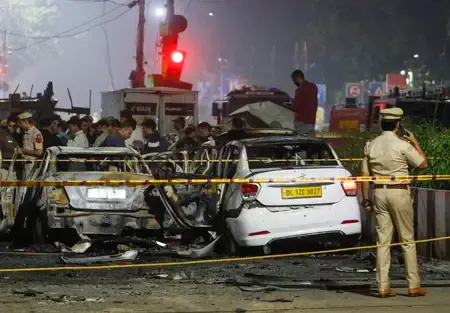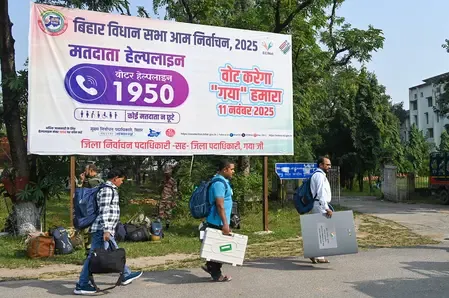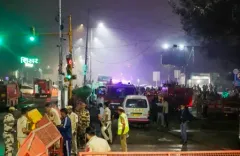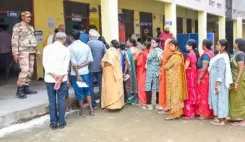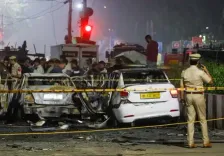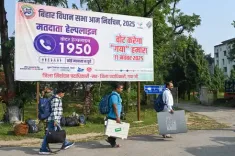Why is Pakistan Firing at J&K LoC for the 11th Day?
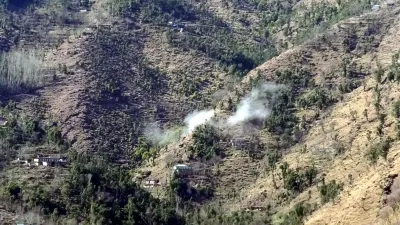
Synopsis
Key Takeaways
- Pakistan Army has fired on Indian positions for 11 consecutive days.
- Indian troops have responded promptly and proportionately.
- Tensions escalated after a terrorist attack in Pahalgam.
- India has taken significant measures against Pakistan.
- Operational freedom has been granted to the armed forces.
Jammu, May 5 (NationPress) For the 11th consecutive day on Monday, the Pakistan Army engaged in unprovoked small arms firing targeting Indian positions along the Jammu and Kashmir Line of Control (LoC). In response, Indian troops acted swiftly and appropriately.
The Defence Ministry's statement indicated that, "During the night of 04 -05 May 2025, Pakistan Army posts initiated unprovoked small arms fire across the LoC in regions opposite Kupwara, Baramulla, Poonch, Rajauri, Mendhar, Naushera, Sunderbani, and Akhnoor in J&K."
“The Indian Army's response was swift and measured,” the ministry elaborated.
On the night of May 3 and May 4, the Pakistan Army similarly engaged in unprovoked small arms fire across the LoC in areas adjacent to Kupwara, Baramulla, Poonch, Rajauri, Mendhar, Naushera, Sunderbani, and Akhnoor in J&K.
The Indian Army had reacted swiftly and appropriately.
Relations have escalated dramatically between the two nations following the heinous attack by Lashkar-e-Taiba (LeT) terrorists, backed by Pakistan, which claimed the lives of 26 innocent civilians—including 25 tourists and one local—on April 22 in the Pahalgam Baisaran meadow.
The nation expressed outrage over this cowardly attack. Prime Minister Narendra Modi stated in response to the Pahalgam incident that the terrorists, along with their handlers and supporters, would be pursued relentlessly.
India has implemented several measures against Pakistan, including the deportation of its nationals, closure of the Attari-Wagah border, suspension of the Indus Water Treaty, restriction of airspace for Pakistani commercial flights, and halting all trade and cultural exchanges.
PM Modi has granted operational autonomy to the armed forces to retaliate for the Pahalgam incident.
This decision followed a meeting with the defence minister, national security advisor, chief of defence staff (CDS), and the heads of the army, navy, and air force.
Defence Minister Rajnath Singh had a significant 40-minute discussion with the Prime Minister on April 28.
Following this, the defence minister met with the PM after receiving an extensive briefing from the CDS regarding the military's readiness for any potential situation.
Recently, J&K Lt Governor Manoj Sinha held a security review meeting with Army Chief General Upendra Dwivedi in Srinagar.
The L-G urged the Army to utilize necessary force to track down the assailants of the Pahalgam terrorist attack.
In a display of strength, security forces have demolished the homes of terrorists to send a decisive message to their associates and sympathizers.
On April 25, residences belonging to Adil Hussain Thokar and Asif Sheikh were destroyed in the areas of Tral and Bijbehara; both were associated with the LeT group implicated in the Pahalgam incident.
To date, security forces have demolished the homes of 10 active terrorists in the Kashmir Valley.
On April 28, the J&K Assembly unanimously condemned the barbaric terrorist assault and passed a resolution in response.

